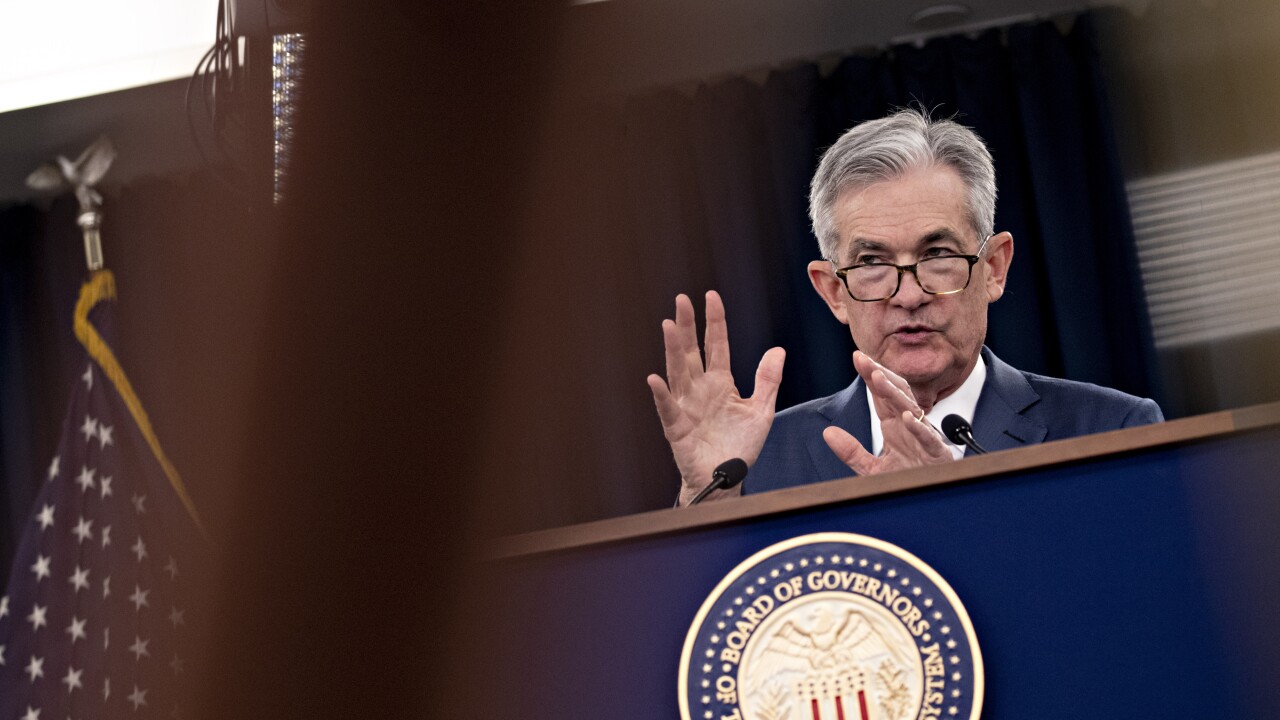Visa typically adjusts its interchange rates every April and October, but this year it is getting an atypically strong response.
Bloomberg News, which obtained a
Visa told PaymentsSource it has no comment on the coming changes, nor did it challenge how they were depicted in news reports. Its letter to banks, summarizing a new system which processors are already working to implement, was met with disdain from some merchant groups, but also some "wait-and-see" attitudes. Merchants agree they are at a disadvantage in having not seen the document Visa sent to banks.
“It’s typical of the credit card industry, that news about increases in fees is shared last with the merchants who will have to pay the cost," said Stephanie Martz, senior vice president and general counsel for the National Retail Federation.
It’s also telling when the changes are characterized as efforts to "optimize acceptance," Martz added. "That’s code for shifting fees to higher volume transactions while lowering other fees, all the while ‘optimizing’ the networks’ own revenue.”
The Retail Industry Leaders Association was quick to condemn.
“Let’s be blunt," said Austen Jensen, senior vice president for government affairs at the RILA. "Visa teasing that rates will go down for 'some' is masking the true impetus for this plan—their aim is to hike rates on the vast majority of merchants."

The Visa letter indicated that interchange would increase for card-not-present transactions, while some transactions at large grocery stores would decrease.
"This sleight-of-hand shouldn’t fool lawmakers or regulators," Jensen said. "Visa is attempting to hide the impact of these changes with lots of fancy buzzwords, but the reality is that they are setting themselves up to drive up costs at local retailers, restaurants and other merchants with higher fees.”
The prevalence of card payments makes it difficult for merchants to object or adapt to these changes, Jensen said.
“More people are using plastic, and more merchants accept cards than at any point in our history," he said. "In a free market with competition, that would drive costs down, not up. There is only one reason Visa is preparing to hike fees on merchants—they can."
Not all merchants are so quick to judge. Merchant Advisory Group CEO John Drechny said his organization was going to gather more information and talk to more merchants in the coming week before determining what the Visa statement means to them.
Talk of
But the reasoning behind such changes leaves merchants frustrated, and they have taken those frustrations out on Visa and Mastercard in the courtroom.
Just before the Christmas holiday, the U.S. District Court in New York issued its final
A year earlier, Visa and Mastercard put to rest two decades of
The EU dropped its investigation in light of the agreement, months after fining Mastercard $636 million in the case. The end result was Mastercard dropping debit fees late in 2019 to 0.2% and credit card fees to 0.3% of a transaction, the same rates it applies to European cards.
But the latest interchange restructure announcement could be a sign of a more significant shift in card network policies.
"Interchange has historically been radioactive on the card payments side in the industry," said Steve Mott, principal of BetterBuyDesign, a Stamford, Conn.-based consulting firm. "One of the sources of that radioactivity is no input from anyone else other than the card brands in coming up with the fees."
The extremely complex interchange tables and difficulty for merchants and others in the payments industry to grasp them simply fuels the fires of discontent, but it might be wrong to jump to conclusions this time, Mott advised.
"Merchants don't know what is going on yet, or how it will affect them and they don't trust the card brands to operate in their best interests," Mott said.
On its surface, Visa's $5.3 billion acquisition of data company
Yet, Plaid's technology could potentially open the door for Visa to move toward a far different interchange model, one that gives merchants more payment options to choose from.
"It's just speculation at this point, but with Plaid, maybe Visa is saying let's expand our business model and do all kinds of payments through all kinds of mechanisms," Mott said. "If they want the liability on certain circumstances and can do that for 25 cents versus $2 for a credit card, they could do it, and it still all goes through the Visa network."
While such an approach flies in the face of history, it's not impossible.
"If it's a harbinger of more openness on the value and the economic underpinnings of interchange, and particularly how rates are determined and also offering realistic choices for participants to pick among rates, that would be a great thing," Mott said. "It could unwind a lot of issues we have in the payments industry now."
People are "deservedly going to be skeptical" because of what has happened regarding fees over the last 30 to 40 years, Mott added.
And some are showing that the frustration continues to mount.
“Our payments market is broken," the RILA's Jensen said. "In the absence of true competition, it’s time for lawmakers and regulators to step back in to prevent the largest card networks and banks from fleecing American merchants.”





